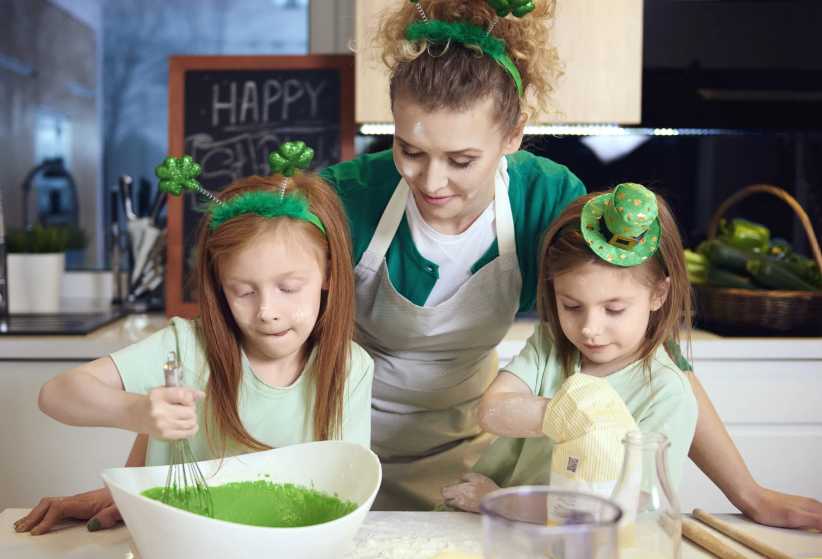Do crabby children live at your house? The culprit could be their diet. At one time, the link between food and mood was pooh-poohed by scientists. Now research suggests a child’s diet may influence not only mood, but also stress, attention, anxiety, impulse control, and sleep.
“A diet for good mental health is the same one that dietitians promote for heart health — one with lots of fruits and vegetables and a variety of protein sources including lean beef, cold water fish, and legumes,” says registered dietician Bridget Swinney, a nutrition consultant and author of “Eating Expectantly and Healthy Food for Healthy Kids.” “Overall, a balance of nutrients is important.”
How it works
Proper nutrition is important to the production of neurotransmitters, which are brain chemicals that help messages get passed between nerve cells in the brain. An imbalance of neurotransmitters has been implicated in mental health. Amino acids — the building blocks of protein — are the precursors to neurotransmitters. Vitamins and minerals also play a role in their conversion.
One neurotransmitter is serotonin, which regulates mood, anger, and aggression, appetite and some cognitive functions. There can be a shortage of serotonin due to an insufficiency of the amino acid, tryptophan. Although tryptophan is widely distributed in protein-rich foods, such as meats, poultry and fish, other amino acids in those foods interfere with the entry of tryptophan into the brain. The brain is then not able to make adequate serotonin.
By eating a balanced diet that also contains healthy carbohydrates, tryptophan can get into the brain where it’s converted into serotonin.
Omega-3
Omega-3 fatty acids are an important structural component of brain tissue, and a lack of them may affect both cognitive function and behavior.
“There are promising studies showing a link between fish oil and decreased symptoms of ADHD, depression, and psychosis,” says Swinney. They can be found in “cold water fish like salmon, sardines, supplements containing fish oil or omega-3 fat produced from algae.”
Inflammation
There may be an inflammation-brain-mood connection, with inflammatory cytokines signaling certain regions of the brain to release the stress hormone cortisol, which can lower mood.
Anti-inflammatory foods include colorful produce, beans, mushrooms, anti-inflammatory spices (garlic, turmeric and curcumin), green tea, soy protein, extra virgin olive oil, and dark chocolate.
While there are some cases where diet is not enough to influence your child’s overall mental health, dietary improvements are certainly worth a try.
Christine Palumbo is a Naperville-registered dietitian nutritionist who is a new Fellow of the American Academy of Nutrition and Dietetics. Follow her on Twitter @PalumboRD, Facebook at Christine Palumbo Nutrition, or Chris@ChristinePalumbo.com.
Black Bean Burgers
Total time: 15 min
Prep time: 10 min
Servings: 4
INGREDIENTS:
1 cup finely chopped onion
3 cloves garlic, minced
4 teaspoons vegetable oil, divided
1 can (15 oz.) black beans, rinsed and drained
1 teaspoon cumin
1/8 teaspoon salt
1 egg, beaten
2 cups Kellogg’s All-Bran Complete Wheat Flakes cereal, crushed to about 1 cup
1/4 cup chopped pecans
1/3 cup salsa
DIRECTIONS: In large, nonstick skillet cook onion and garlic in 2 teaspoons of oil until tender.
In food processor bowl, combine onion mixture, beans, cumin, and salt. Cover and process until smooth.
In medium bowl, stir together bean mixture, egg, cereal, and pecans. Shape into four 1/2-inch thick patties.
In same skillet, heat remaining 2 teaspoons oil until sizzling.
In skillet, cook patties over medium-high heat for 5 minutes or until lightly browned, turning once.
Serve with salsa.
NUTRITION FACTS: 250 calories, 37 g carbohydrates, 11 g fiber, 7 g sugar, 9 g protein, 11 g fat (1 gram sat fat), 45 mg cholesterol, 570 mg sodium, 80 percent DV iron, 80 percent DV vitamin C, 10 percent DV vitamin A, 8 percent DV calcium.
A recipe from Kellogg Kitchens.





















